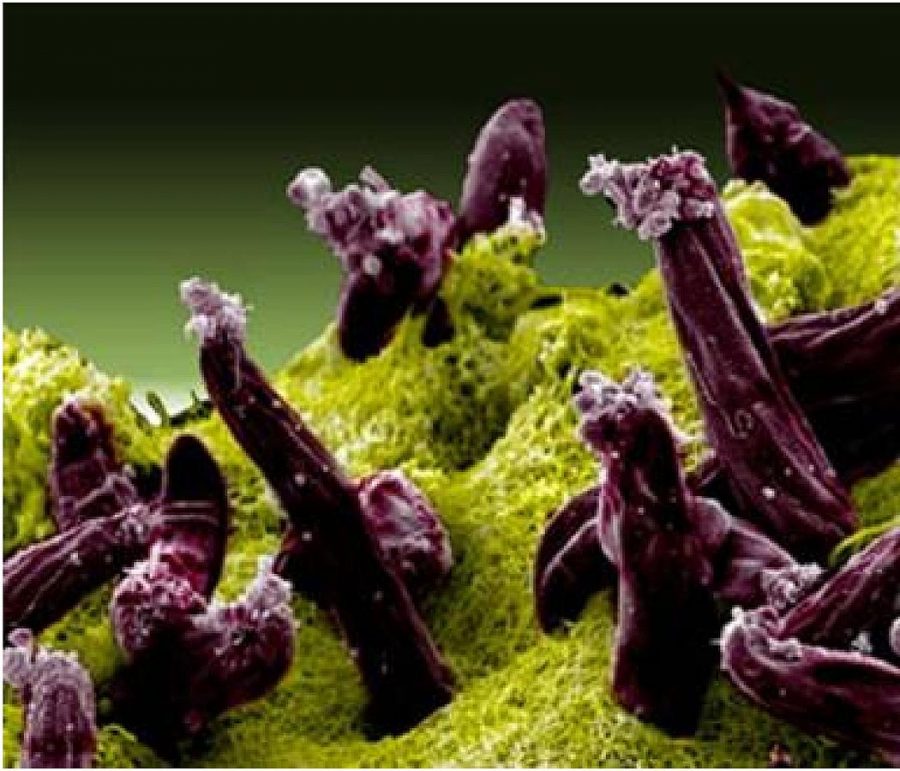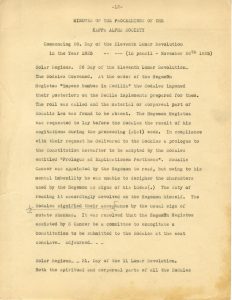Malaria parasites have their own circadian rhythms
: Scanning electron micrograph of Plasmodium gallinaceum invading mosquito midgut, Courtesy of WikiCommons
May 20, 2020
A recent genetic analysis of Plasmodium, also known as malaria parasites, discovered that they have their own circadian rhythms. This means that they do not depend on their host for an internal clock. Determining how malaria parasites’ internal clock works could lead to potential treatments by disrupting their circadian rhythms.
Circadian rhythms are changes to physical, mental, and behavioral aspects that follow a timed cycle. According to the National Institute of General Medical Sciences, these timed cycles can vary in length. However, most follow a daily cycle due to responding to light and darkness in the organism’s environment. Some cycles follow the organism’s feeding cycle, therefore making the cycle length vary depending on the organism’s feeding schedule.
Malaria is a mosquito-borne illness that infected approximately 228 million people worldwide and caused over 400 thousand deaths in 2018, according to Science News. Fever and chills return every 24, 48, or 72 hours depending on the Plasmodium species infecting the host. This is due to the parasites’ synchronized reproduction and destruction of the host’s red blood cells. However, this recent discovery of malaria parasites having their own circadian rhythm could be another reason why the symptoms involved with this infection appear in a cyclic fashion.
The study that discovered the internal circadian rhythm changed certain aspects of the mice hosts internal clock to determine what it is based on. The scientists placed the mice in constant darkness to eliminate light and dark cues, throwing off the animals’ circadian rhythms. This change of constant darkness did not affect the malaria parasites’ internal rhythms. The researchers also varied the feeding schedule of the mice to see if it would elicit a change in malaria parasites’ internal rhythms but it did not. Then, the scientists engineered the mice to completely lack an internal clock, but the Plasmodium parasites maintained their circadian rhythms. These findings suggested that the parasites have their own, independent clock. This discovery is important for medicine because it could lead to more potential malaria treatments.







